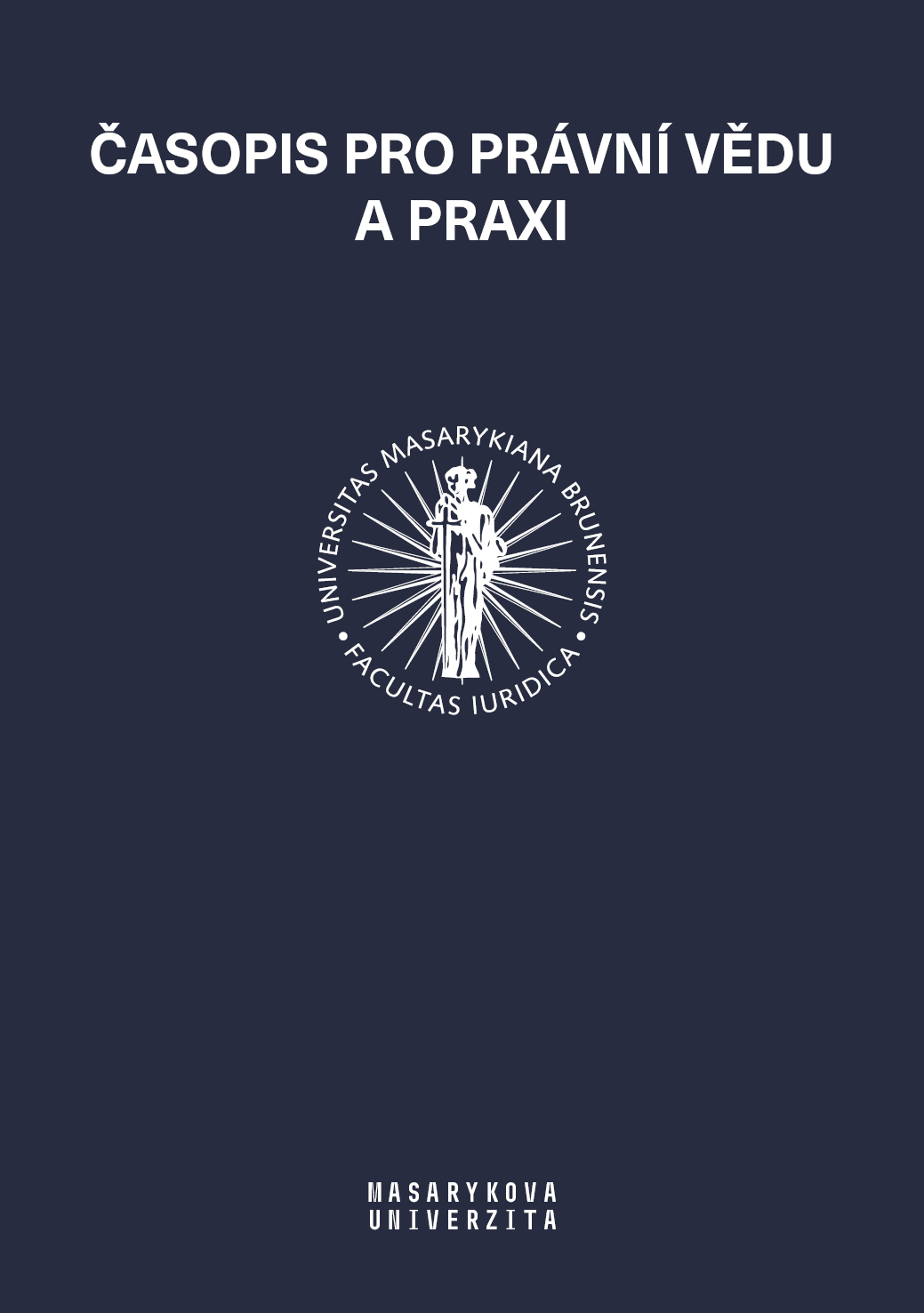Dědická instituce jako základní obsahová náležitost testamentu
The Designation of the Heir as the Essential Prerequisite of the Testament
Author(s): Petr DostalíkSubject(s): History of Law, Civil Law
Published by: Masarykova univerzita nakladatelství
Keywords: roman law; law of inheritance; successio universalis; transferring of property;law of succession;contemporary legal system;modern civil law;
Summary/Abstract: This article concerns about the last will in the classical and post-classical Roman law. The aim of the article is to describe the essential parts of the content of the last will – the appointment of the heir. Therefore is the article divided into two parts. The first part is dedicated to the main principle of the Roman law of inheritance – to the principle of successio universalis. According to the meaning of P. Bonfante and J. Vážný, the real purpose of the successio universalis is to be found not in the transferring of property from the deseased to the heir but in the successio in locum, that means that the heir has to replace the person of de cuius and has to take-over the claims and debts of the deceased. But not only the financial affairs but also the home religious duties (sacra familiaria), the patronage over the slaves of the deceased (ius patronatum) and so on. So the main purpose of the Roman law of succession is different from the law of the succession of the better part of the contemporary legal systems. The second part of the article is dedicated to the legal institute of the “mystique testament” (testamentum mysticum). This form of testament, which has been invented by the roman jurisprudence, allows to the deceased hide the name of the heir. The name itself is not part of the testament, but can be written elsewhere, for example in a letter. Pay is also attended to the institute of codicil, the informal appendix of the testament in the Roman and Contemporary Law. This article concerns about the origin of the testament mystique, further development of this institute in the later (imperial) roman law and its influence upon the modern civil law. The idea of the hidden form of the appointment of the heir was received in the Austrian and French Civil Code, but was rejected by the German and Polish law.
Journal: Časopis pro právní vědu a praxi
- Issue Year: 20/2012
- Issue No: 3
- Page Range: 275-282
- Page Count: 8
- Language: Czech

